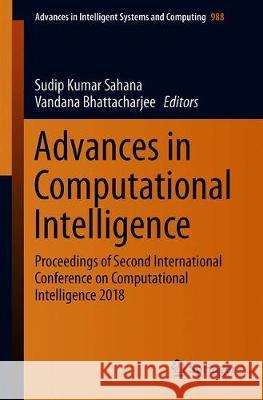Advances in Computational Intelligence: Proceedings of Second International Conference on Computational Intelligence 2018 » książka
topmenu
Advances in Computational Intelligence: Proceedings of Second International Conference on Computational Intelligence 2018
ISBN-13: 9789811382215 / Angielski / Miękka / 2019 / 368 str.
Advances in Computational Intelligence: Proceedings of Second International Conference on Computational Intelligence 2018
ISBN-13: 9789811382215 / Angielski / Miękka / 2019 / 368 str.
cena 644,07
(netto: 613,40 VAT: 5%)
Najniższa cena z 30 dni: 616,85
(netto: 613,40 VAT: 5%)
Najniższa cena z 30 dni: 616,85
Termin realizacji zamówienia:
ok. 16-18 dni roboczych.
ok. 16-18 dni roboczych.
Darmowa dostawa!
Kategorie:
Kategorie BISAC:
Wydawca:
Springer
Seria wydawnicza:
Język:
Angielski
ISBN-13:
9789811382215
Rok wydania:
2019
Dostępne języki:
Numer serii:
000453356
Ilość stron:
368
Waga:
0.53 kg
Wymiary:
23.88 x 16.76 x 1.27
Oprawa:
Miękka











